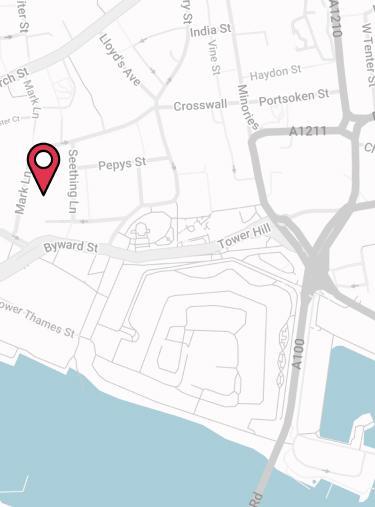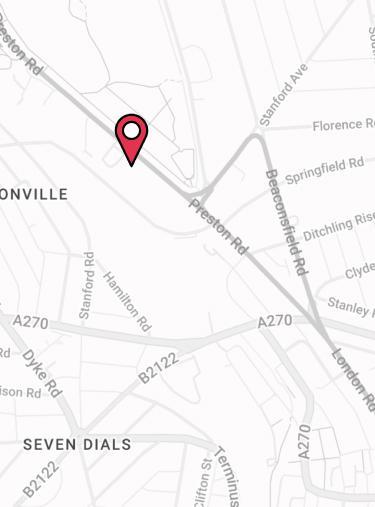Beware Coronavirus Scams: What to Look For and How to Avoid Them…
In this time of national and indeed international crisis, what you’d hope to see is everyone coming together as one to pull through it.
While that’s mostly the case, there is unfortunately a minority of the population out there who are using the current coronavirus pandemic to make a quick buck by scamming worried Brits at this difficult time.
We’ve become aware of a number of different scams and fraudulent practises being used right now, so we’ve put together a guide on some of the most common ones for everyone to read and hopefully avoid the con artists should they become a target.
- Insurance Cold Callers
- Pension Cold Callers
- Coronavirus Tax Rebates / Payouts
- Fake Lockdown Fines
- Advance Loan Payments
- Good Cause Scams
- Doorstep Scams
- Trouble at Your Bank
- Bogus Firms
- Avoiding Scams and Fraud
Cold Callers Warning About Your Insurance Coverage
We’ve become aware of a number of incidents of cold callers ringing individuals, often people who are more vulnerable, and spreading misinformation that they aren’t covered for coronavirus (COVID-19) under their current Life Insurance or Income Protection policy.
This is with the aim of getting individual to cancel their current policy and switch to one supplied by the cold caller.
Does My Current Insurance Policy Cover Coronavirus?
For those concerned, providing you took out your Income Protection or Life Insurance policy before the start of the coronavirus pandemic, you are covered if you develop the disease and can’t work, or even sadly pass away.
There’s little point in switching to another Life Insurance policy if you already had one before the pandemic, as this continues to be perfectly valid and offer the cover you need.
Cold callers are trying to get you to take out a new policy to earn what’s known as a ‘rebroking’ fee for switching your provider, even though there’s no reason for you to do so in the first place.
Will a New Income Protection Policy Cover Me for Coronavirus?
If you cancelled your current policy with coronavirus protection for a new one set up by a cold caller, you may find yourself no longer covered for COVID-19.
This is because, as I’m sure you can imagine, the arrival of COVID-19 has changed the insurance market significantly, with Income Protection insurers in particular placing exclusions on new policies or only offering longer deferral periods.
Essentially, a new policy is unlikely to offer the same cover for coronavirus you have on your current policy and it’s important you realise this.
If you receive a cold call that worries you and makes you unsure about just what you’re covered for, then please don’t hesitate to give us a call and we can double check for you. If you already have an adviser then give them a call and they should be happy to assist as well.
Cold Callers Part 2: Your Pension / Investments
Another way cold callers are targeting people in light of coronavirus is attempting to get access to their hard-earned pension savings.
Coronavirus has unfortunately seen a sharp correction in global markets in recent weeks, with many people seeing the value of their pensions and investments fall as a result.
Fraudsters have sought to capitalise on people’s concerns about the value of their pensions and investments in a variety of ways. Some are offering ‘free pension reviews’ to try and get their hands on your cash.
Risk-Free Investments
Others are touting ‘risk-free’ investment opportunities, which may sound appealing given the recent market downturns; however, all investments carry at least some risk.
Guaranteed Returns
Similarly, other fraudsters are promising to take your pension / investments and place them somewhere that will ‘guarantee’ returns — there are no guaranteed returns in the world of investing. The value of your investments can always fall as well as rise, meaning there’s always a potential to get back less than you invested.
Opportunity With Huge Returns
Another tactic is to promise huge returns on your savings, often by investing in ‘new’ investment opportunities. These may be overseas, such as hotel developments. Remember, if it sounds too good to be true, it probably is.
Pension cold calls are now illegal, so if you receive one the best thing to do is just to hang up. Texts, emails, online adverts and other methods offering similar opportunities are also likely a front for fraud.
Texts Offering Coronavirus Tax Rebates / Payouts
The government sent a mass text to every UK mobile number at the start of the lockdown reminding them to stay inside and providing a link to further information.
This opened the floodgates to similar texts with links in promising a HMRC tax rebate or a coronavirus payout from the government.
With the government promising payouts to various individuals, such as the self-employed, to help them through the lockdown, these texts appear genuine, especially when the links take you to a very convincing spoof of the government’s website and when they look so similar to the genuine text message sent out about the lockdown.
However, entering your personal details, especially bank details, into such a website leaves you open to fraud and having money stolen from your account.
HMRC NEVER issues tax rebates by text message. Beware of any links sent in emails or texts, even if they appear to be from a genuine source.
Fake Fines for Breaking the Lockdown
Another text message that appears to come from a genuine source is one informing you that you’ve been caught violating the lockdown and are therefore being fined.
The scam message claims to be from the government, telling the recipient their movements are tracked through their phone and they must pay a fine or face a more severe penalty.
While the police do have the power to fine people caught breaking the government’s quarantine, these will be on-the-spot fines and will not come after the fact in the form of text messages demanding payment.
Loan Advance Payments
Many of us could all use a little bit of extra cash right now, especially if we’re not able to work due to the lockdown or self-isolation.
That’s why it’s been so effective for fraudsters to send out emails or texts offering access to personal loans to people who’ve seen the bottom drop out of their income, all for a ‘advance payment’ or ‘loan arrangement fee’.
You may be asked to pay it by bank transfer, Western Union or even iTunes vouchers — however, regardless of how you pay, the loan never materialises and you lose your cash.
If you’re contacted out of the blue by text or email about a loan with an arrangement fee, especially if you’re put under pressure to pay that fee quickly, ignore it as a scam.
Good Cause Scams
We all want to do our bit to help out people and the NHS right now. It’s been well-publicised that the NHS is straining under the demands coronavirus is placing on it and is desperate for equipment such as ventilators and personal protective equipment (PPE).
Meanwhile, charities are warning that they’ve experienced a severe drop in funding due to fundraising events being cancelled, meaning they’re finding it difficult to help everyone they would have done pre-coronavirus, which is unfortunate as it’s now that many people need help the most.
It’s natural to want to help out in these circumstances, but there’s been an uptick in fraudsters contacting people asking for donations ‘for the NHS’ or for those impacted by coronavirus.
To avoid being scammed, don’t download attachments or click on links in emails unless you’re sure who sent them, even if it appears to be from an organisation you’re familiar with.
The bottom line is that if the email is unexpected or asks you to click on a link / download an attachment, it could be a scam — especially if it asks for personal or financial information.
If you want to donate to a charity during this period, you can search for a registered charity in England and Wales on the government’s charity register. If you’re in Scotland, use the Scottish Charity Regulator’s website. In Northern Ireland, it’s the Charity Commission for Northern Ireland.
Doorstep Scams
There are a variety of these doorstep scams, all of which involve an unsolicited caller on your doorstep, and might include:
- Temperature checks
Claiming to be from an authority, such as the police, the health service or similar, conducting door-to-door temperature checks to look for coronavirus symptoms, sometimes even for a fee! Do not let such people inside. Beware distraction techniques, where a pair of criminals work together, one distracting you with the ‘temperature check’ and another potentially stealing from you. - Offers of vaccinations / home test kits
There is not yet a coronavirus vaccine, although it’s being worked on as quickly as possible. Anyone going door-to-door right now pedalling a coronavirus vaccine is a con artist. Home test kits are in the works but are also not yet widely available — you’re likely to be sold a fake product while criminals make off with your cash. - Door-to-door sales of hand sanitisers
We’ve all had trouble getting hold of hand sanitiser in recent weeks as coronavirus panic grips the country. However, doorstep sellers of hand sanitiser are likely to be fraudsters selling fake hand sanitiser. There’s even been reports of such sanitisers containing a potentially harmful substance called glutaral (or glutaraldehyde), which was banned for human use in 2014.
Always ask for the ID of anyone coming to your door and make sure it is genuine. If you feel uncertain, close the door on them.
Messages About Trouble at Your Bank
The FCA has reported incidences of text messages and emails claiming to be from your bank stating that the bank has run into trouble as a result of the coronavirus.
Playing on these concerns, the fraudsters then ask you to transfer your money to a ‘different bank’ or a ‘safe account’ to protect it from the bank going under.
No bank will ever contact you by text or email asking you to move your money to a new, different or safe account. If you do so, it’s highly unlikely you’ll ever get the money back.
Watch Out for Bogus Firms
Not necessarily a coronavirus scam, but this has always been an issue on the fraud front: fake firms.
Companies must be on the Financial Conduct Authority’s register to operate in the financial services sphere, including the sale, promotion or the offering of advice on shares or investments (including pensions).
You can find Drewberry’s entry on the FCA register here.
Protect yourself by checking the FCA’s register for any firm that contacts you wanting to do business with you, especially regarding your pension and investments.
Always check yourself by visiting register.fca.org.uk, which should have the main switchboard number for the firm that contacts you. Even if the firm is on the register, use this main number to call the firm back rather than the one the firm who contacted you gives you, as the one a fraudster gives you will be fake and won’t lead to a genuine firm.
Avoiding Scams and Fraud
If you’ve been contacted in any of the above ways, the key takeaway is to never provide any personal or banking information. For cold callers, simply hang up; for unsolicited text messages and emails, send them to the trash.
You can flag emails as spam so you won’t continue to get emails from similar senders or on similar topics.
If you have already provided information and you’re worried it might be a scam, please alert your bank and contact Action Fraud.
To keep up-to-date with the latest scams, see Action Fraud and ScamSmart. For more information on pension scams, see The Pensions Advisory Service and The Pensions Regulator.
Contact Us
125-135 Preston Road
Brighton
BN1 6AF
Cookies
Drewberry™ uses cookies to offer you the best experience online. By continuing to use our website you agree to the use of cookies including for ad personalization.
If you would like to know more about cookies and how to manage them please view our privacy & cookie policy.









